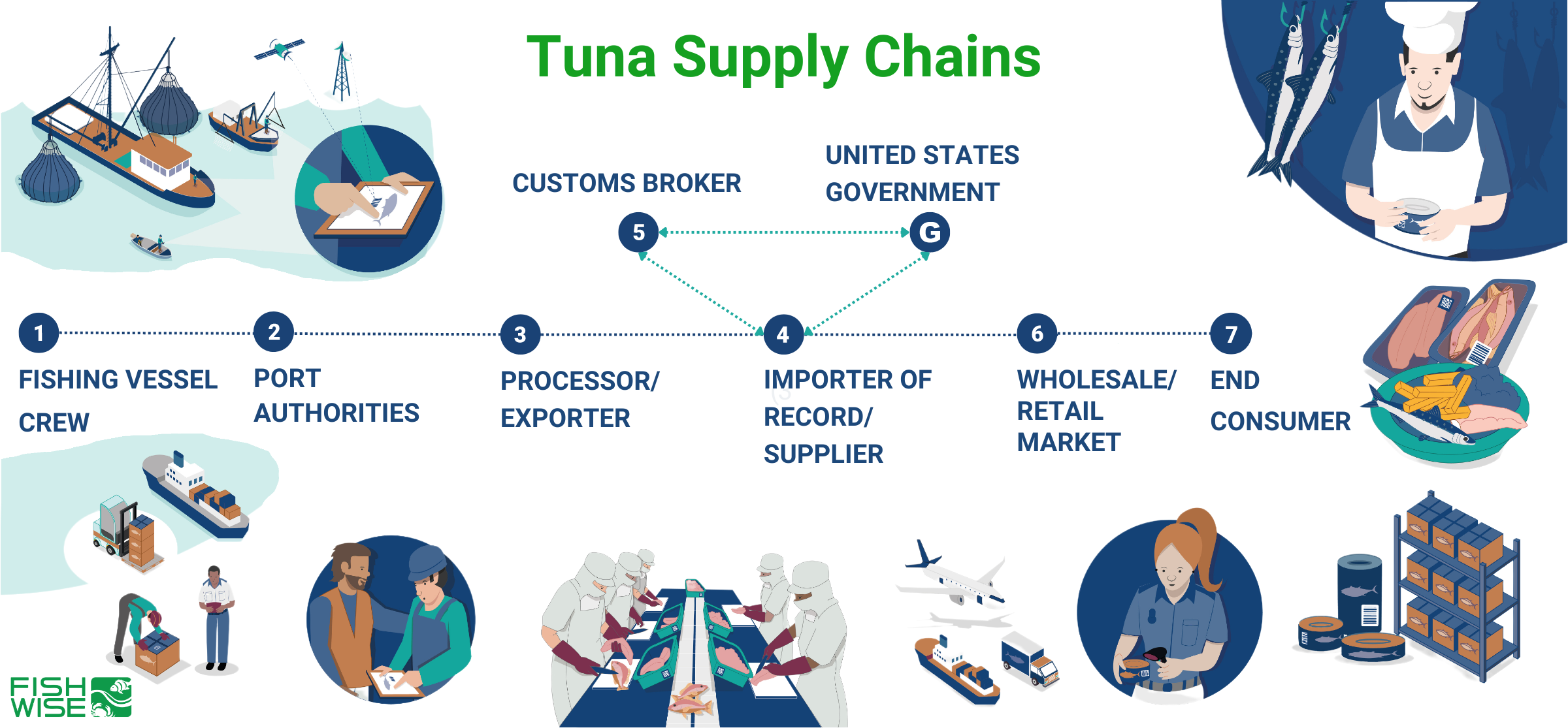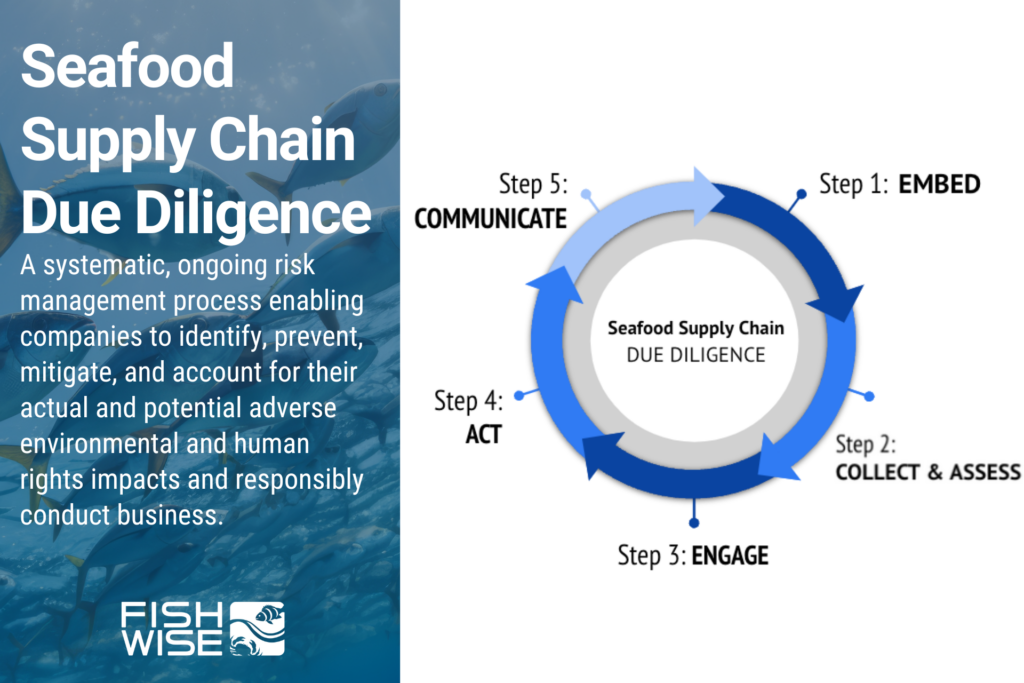World Tuna Day, celebrated annually on May 2nd, serves as a poignant reminder of the critical need to prioritize the sustainability of our ocean’s tuna fisheries. Many tuna supply chains are considered higher risk for environmental impacts, illegal, unreported, and unregulated (IUU) fishing, and human rights and labor abuses. The UN Legal Counsel has spoken out on the critical need to effectively manage tuna stocks to prevent overfishing. Furthermore, the intricate nature of tuna fishing exposes workers to potential human rights abuses.
What makes tuna supply chains so complicated?
Tuna is among the most popular and profitable fish species, so demand is high and ever-growing. At the same time, tuna is often harvested in remote areas of the ocean where monitoring and regulatory enforcement are weak. Although traceability is becoming more widespread and advanced, challenges in tracking tuna throughout the supply chain remain. Under these conditions, illegal fishing and human rights and labor abuses can occur unchecked.

Transparency in tuna supply chains is key.
FishWise helps businesses understand the origins and associated risks of their tuna sources, including activities of fishing vessels and at-sea transshipment (the practice of transferring catch or supplies between vessels at sea; common in tuna supply chains). In particular, remote fishing locations and transshipment events make it very difficult to enforce labor best practices. By collecting basic product data, businesses can make more informed sourcing decisions. As data transparency in supply chains improves, companies can go beyond basic data collection to accessing data that provides more granularity about where the tuna came from. Reaching vessel-level transparency can allow for more comprehensive assessments, and based on what that data uncovers, businesses can then make informed decisions and confidently act.
FishWise has recently developed Vessel Risk Dashboards.
Our newly released Vessel Risk Dashboards offer companies an unparalleled look into their tuna supply chains. The results of collaboration with allied NGO’s, using supply chain data from a major U.S. retailer, have led to the development of dashboards that visualize information. This tool turns vessel data into actionable, company-specific recommendations to mitigate potential risks in supply chains. Where a single can of tuna can be sourced from upwards of 10 different vessels with different fishing gear, FishWise’s services can support transparency improvements to get granular vessel information and provide companies with strategic next steps.
Read about the evolution of our new dashboard service.
FishWise Develops New Data Capabilities, Using Hy-Vee Transparency Exercise
From its inception in 2021, the Hy-Vee Private Label Tuna Vessel List has been a testament to the commitment of Hy-Vee Inc. and FishWise towards transparency and ethical responsibility in seafood sourcing. However, it was the introduction of FishWise’s recent Risk Dashboard that truly transformed our approach.
Our Resources
We believe that the seafood industry not only has serious impacts on the health of oceans and the welfare of its workers, but also the potential to make an enormous contribution to the health of our planet and its inhabitants. Learn more about the complexity of tuna, see our services or contact us to talk strategy.
FishWise helps our partners understand their supply chains.
Seafood is complex. Sustainability is complex. It’s okay, we meet companies where they are. FishWise helps businesses achieve their ideal end state through a due diligence approach, and we recognize it can be a long process. These things take time, and our partners should consider this process an investment in themselves. And, of course, given the global nature of tuna trade, collaboration drives change because the problems are bigger than one company, organization, or government can solve alone.

Here's where advocacy comes in.
Among FishWise’s services, we work with partners to bridge their on-the-water experience with effective policy advocacy, whether through discreet advocacy opportunities or pre-competitive forums. It is imperative that those most impacted by policy and rules have a voice in the process. FishWise finds opportunities for seafood businesses to engage in those policies most closely related to their work, and guides the process.
FishWise also influences systemic change through engagement across regional fisheries management organizations, which creates a mechanism for international cooperation and policy enforcement. By participating in collaborations like the NGO Tuna Forum, FishWise addresses challenges collectively and can provide actionable ways to progress on tuna sustainability.
No one organization can do it alone. Collaboration is the lifeblood of FishWise’s work, and actions like these impact the long-term change needed to protect our oceans and fish stocks for future generations. There is no one small adjustment that will shore up a company’s supply chain, so see the process through. It’s worth it. FishWise can help.
Talk with FishWise staff about how to tailor a sustainability strategy for your business.






